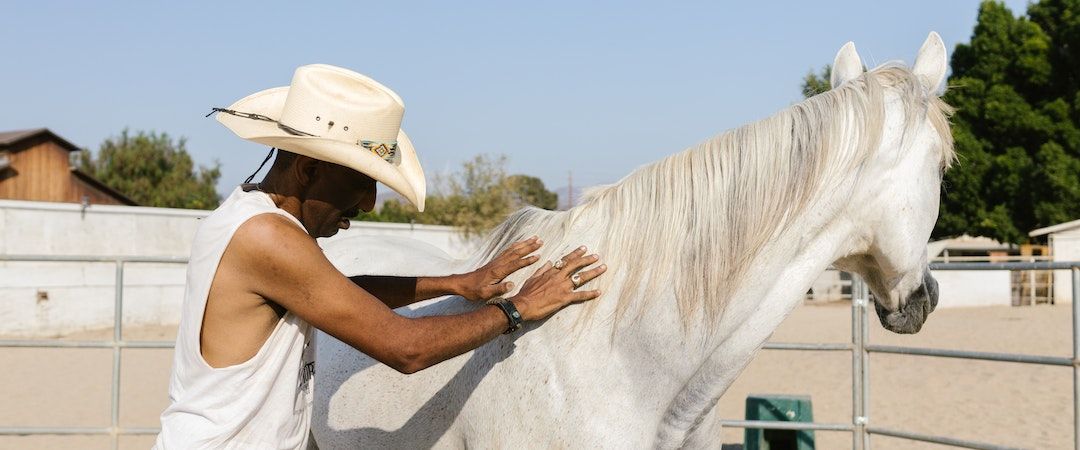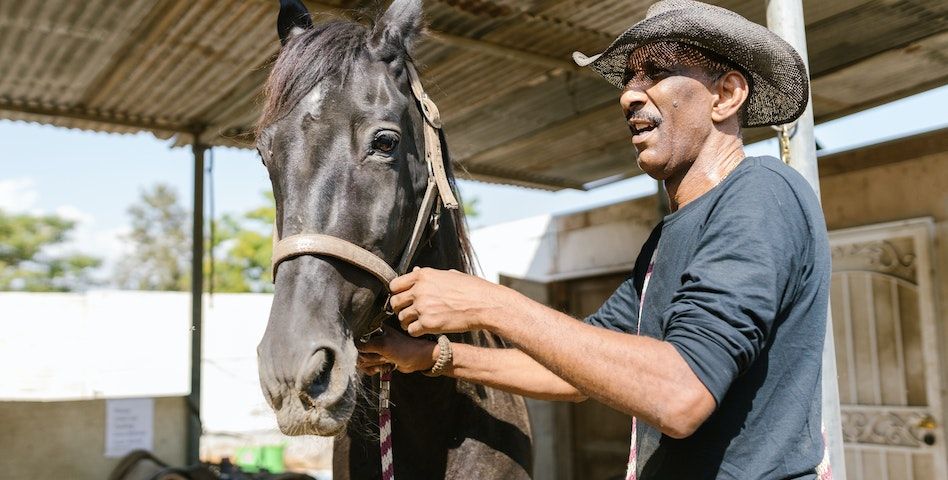How To Become An Animal Caretaker
Becoming an animal caretaker calls for so many things. Read the blog to know this unique career option.

Animal caretakers play a crucial role in the lives of animals. These individuals provide care and support for animals in a variety of settings, such as animal shelters, zoos, research facilities, and veterinary clinics. If you are interested in becoming an animal caretaker, it is important to understand what education and experience is required, as well as the need for entering this field of job.

Education and Experience
Education and experience are both important factors to consider when becoming an animal caretaker. Understand the education requirements here:
Study Required
Typically, a high school diploma or equivalent is required to start working in this field. However, some employers may prefer candidates with an associate or bachelor's degree in animal science, biology, or a related field.
Education Requirements
In addition to formal education, experience is also important when becoming an animal caretaker. Many employers prefer candidates with experience working with animals, which can be gained through volunteer work or internships. This experience can also help individuals develop the necessary skills to work with animals, such as communication, attention to detail, and compassion.
Need for Entering the Field
There are a variety of reasons why individuals may choose to become animal caretakers. Some may have a passion for working with animals and want to make a difference in their lives. Others may be interested in pursuing a career in animal care or a related field, such as veterinary medicine.
Why Become Animal Caretaker?
Regardless of the reason, animal caretakers play an important role in caring for animals and ensuring their well-being. This can be a fulfilling and rewarding career for those who are passionate about animal care and are willing to work hard to make a difference in the lives of animals.
Scope of Animal Caretaker Field in 2023
The field of animal care is constantly evolving, with new technologies and techniques being developed to improve animal care and welfare. As such, the scope of the animal caretaker field in 2023 is expected to be strong, with a growing demand for skilled professionals in this field.

Areas Of Growth
- One area of growth in the animal caretaker field is in the development of new technologies and techniques for animal care. For example, advancements in veterinary medicine and animal nutrition have led to improvements in animal health and well-being.
- Additionally, the development of new tools and techniques for animal handling and training have made it easier to work with and care for animals.
- Another area of growth in the animal caretaker field is in the development of new facilities and programs for animal care. For example, there has been a growing trend towards developing animal sanctuaries and rehabilitation centers, which provide care and support for animals in need.
- Additionally, there has been a growing interest in developing programs to educate the public about animal care and welfare, such as animal-assisted therapy programs.
Overall, the field of animal care is expected to continue to grow and evolve in the coming years, with a growing demand for skilled professionals in this field. As such, individuals who are passionate about animal care and are willing to work hard to make a difference in the lives of animals may find a rewarding and fulfilling career as an animal caretaker.
Things to Keep in Mind Before Becoming an Animal Caretaker
Before pursuing a career as an animal caretaker, there are a few things that individuals should keep in mind:
Physical Demands
Working as an animal caretaker can be physically demanding, as it may require lifting and moving heavy objects, cleaning cages and enclosures, and being on your feet for extended periods of time. It is important to be physically fit and capable of performing these tasks before pursuing a career as an animal caretaker.
Emotional Demands
Caring for animals can be emotionally demanding, particularly if you are working in a shelter or rescue facility. It is important to be prepared for the emotional toll that caring for animals can take and to develop coping strategies to manage stress and compassion fatigue.
Commitment
Working as an animal caretaker often requires long and irregular hours, including weekends and holidays. It is important to be committed to the well-being of the animals in your care and willing to make sacrifices to ensure their needs are met.
Education and Training
While formal education is not always required to become an animal caretaker, it can be beneficial to pursue a degree or certification in a related field. Additionally, ongoing training and professional development can help individuals stay up-to-date with the latest advancements and techniques in animal care.
Job Prospects
Before pursuing a career as an animal caretaker, it is important to research the job market and job prospects in your area. Some areas may have a higher demand for animal caretakers than others, and it is important to be realistic about the job prospects and potential earnings in this field.

Things to Keep in Mind After Becoming an Animal Caretaker
Once an individual has become an animal caretaker, there are several things to keep in mind to ensure success in this field:
Continuing Education and Professional Development
To stay up-to-date with the latest advancements in animal care and to improve job prospects, it is important to pursue ongoing education and training. This may include attending conferences and workshops, pursuing additional certifications, or pursuing higher education.
Developing Strong Relationships
Developing strong relationships with coworkers, veterinarians, and other animal care professionals can be beneficial in terms of sharing knowledge and resources, as well as developing a strong support system.
Managing Stress
Caring for animals can be emotionally demanding, and it is important to develop coping strategies to manage stress and avoid burnout. This may include engaging in self-care activities, seeking support from colleagues and loved ones, or pursuing professional counseling.
Advocating for Animals
As an animal caretaker, it is important to be an advocate for the animals in your care and to raise awareness about animal welfare issues. This may include educating the public about responsible pet ownership, supporting animal welfare legislation, or volunteering with animal welfare organizations.
Embracing Change
The field of animal care is constantly evolving, and it is important to embrace change and stay open to new ideas and technologies. This may include adopting new techniques for animal care, learning about new research on animal behavior and welfare, or pursuing new career opportunities within the field.

Conclusion
In conclusion, becoming a successful animal caretaker requires a combination of education, experience, and a passion for animal welfare. It is important to be prepared for the physical and emotional demands of the job, as well as to stay up-to-date with the latest advancements and techniques in animal care. With a commitment to lifelong learning, a strong support system, and a dedication to animal welfare, individuals can find a rewarding and fulfilling career as an animal caretaker.